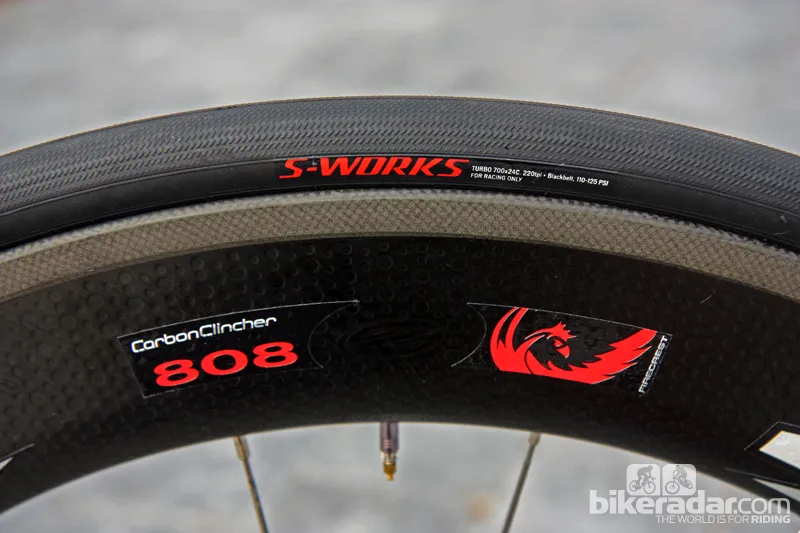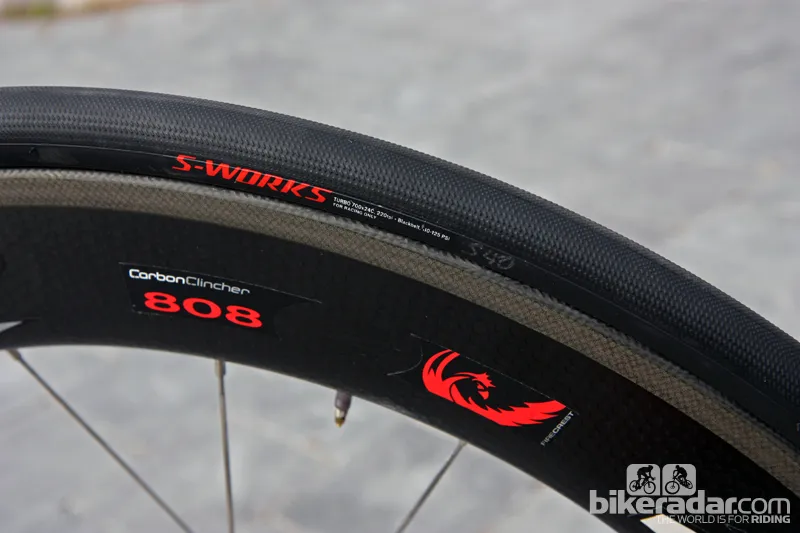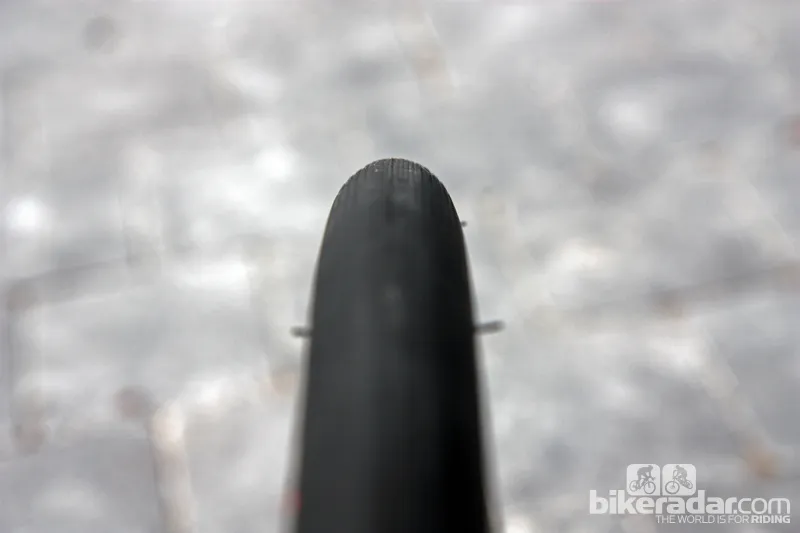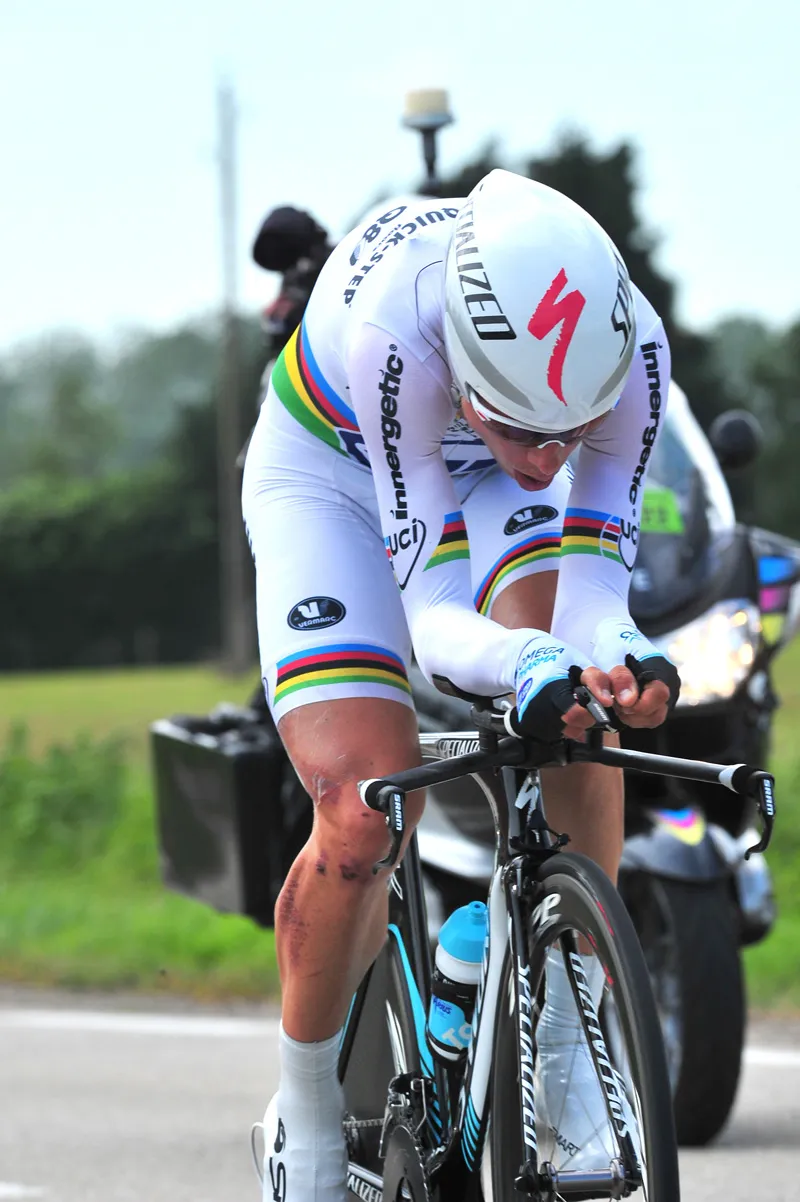Tony Martin shocked tubular tire aficionados when he won last year's UCI time trial world championships on Continental clinchers, and then repeated the feat to capture the German national title.
Martin will continue the trend at this year's Tour de France and according to new tire sponsor Specialized, the decision is one purely rooted in speed: clinchers are faster.
Tubulars are still widely favored in racing circles for a number of reasons: they're safer in the event of a puncture since they can be ridden flat; they generally offer better cornering characteristics on account of their (usually) round cross-sections; they're lighter as a wheel-tire system; and oftentimes they're more supple and thus deliver a better feel for the road.
However, in terms of rolling resistance, several studies have already shown that clinchers can sometimes perform better than tubulars, and Specialized is capitalizing on that fact with a special new TT-specific tire developed with the Omega Pharma-QuickStep team.
Specialized is basing that claim on data from independent wheel and tire test facility Wheel Energy in Nastola, Finland. According to data provided by Specialized to BikeRadar, Martin's prototype 700x24mm S-Works Turbo clincher generates 21.8 watts of rolling resistance when equipped with a latex inner tube (50kg static load, 116psi, 40km/h). An ultra-thin butyl tube moves the needle to 23.7W, a Continental TT-specific clincher with the same butyl tube logs 27.8W, and interestingly, Continental's Competition tubular tire is a touch slower at 28.8W.
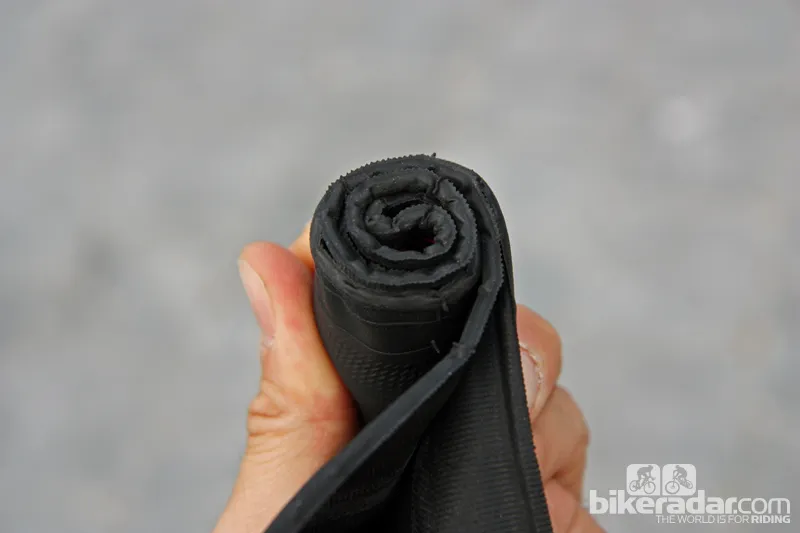
The casing and tread are very thin and flexible — this quite certainly is not a training clincher
According to Specialized tire product manager Wolf vorm Walde, the new tire's highly flexible, 0.28mm-thick, 220tpi nylon casing is carried over from the current S-Works Turbo, making the tread the key part of the formula. Martin has most recently been testing three different versions (Specialized says "more than ten different protos" were made), all with unusually thin and finely patterned tread caps made from a fully synthetic rubber formulations derived from the automotive industry that – at least for now – is exclusive to Specialized.
The fastest tire is designed exclusively for dry conditions on swept roads and has a barely-there tread depth of 0.6mm (tread thickness greater than 2mm is more typical) and a minimal breaker belt to ward off punctures. The intermediate tire – designed for dry roads that haven't been cleaned – and the wet-conditions variant both add another 0.3mm of tread depth and switch to a triple-compound tread for "a little more reserves and more grip on the sides,” according to vorm Walde. Given the greater possibility of punctures, those tires also get a more durable cross-woven polyamide breaker.
Currently, all of the tires are handmade in Thailand by Specialized's compound engineer, Wolfgang Arenz, and use vulcanized construction instead of an open tubular setup. Actual weight for the dry and clean conditions version is just 158g.
Consumer versions will be somewhat heavier when they're released later in August as they'll need to be more durable. Tread depth is currently targeted at 1.8mm for those and there will also be a switch to single-compound fully synthetic rubber.
Team mechanics told BikeRadar that Martin is the only Omega Pharma-QuickStep rider that will definitely use the new clincher tires, mounted up on a variety of Zipp carbon clincher wheels. Whether other teammates – and perhaps even riders on other teams – follow suit remains to be seen.
Worm Walde said that durability and safety issues will still see the riders using tubulars on road stages but Specialized will ultimately integrate the new rubber compounds into those tires as well.
"We don't expect tubulars to go away for road stages any time soon on account of their greater safety in the event of a puncture but it's not as big an issue in time trials, nor is the increased rotating weight for most courses."
